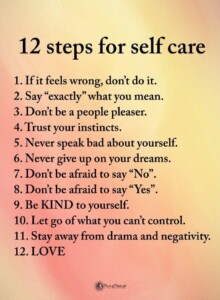From fatigue and mood swings to digestive issues, learn more about the most common hormone imbalance symptoms you shouldn’t ignore.
Our bodies are constantly working to maintain balance, and hormones play a crucial role in keeping everything in sync. However, when hormone levels shift or become imbalanced, they can impact everything from energy levels and mood to physical health. Hormone imbalance symptoms can be subtle at first, but over time, they may lead to significant changes in how you feel and function daily. It’s essential to recognize these signs and understand when it might be time to seek guidance from a healthcare professional.
In this article, we’ll explore 11 common symptoms of hormone imbalance and share insights on what these signals may mean. Taking charge of your health starts with awareness, so let’s dive into the key signs that endocrinologists recommend paying attention to.
11 Strange Hormone Imbalance Symptoms
1 – Unexplained Weight Changes
One of the most noticeable hormone imbalance symptoms is an unexplained fluctuation in weight. Hormones like insulin, cortisol, and thyroid hormones play a direct role in metabolism. When these levels are disrupted, weight gain or loss can occur without any changes to diet or exercise.
Thyroid hormones, for instance, regulate your metabolism. When thyroid function is low, weight gain is common; conversely, hyperthyroidism (overactive thyroid) can lead to rapid weight loss.
If you’re experiencing weight changes without a clear reason, it may be worth checking with a healthcare provider to evaluate your hormone levels.
2 – Persistent Fatigue
Everyone feels tired now and then, but persistent, unrelenting fatigue can indicate a deeper issue. Hormones like cortisol, thyroid hormones, and insulin impact your energy levels.
Low thyroid function or imbalances in cortisol can leave you feeling drained, even with sufficient rest. Chronic fatigue is a common symptom of hormone imbalances and can impact your quality of life.
If you find yourself feeling tired more often than usual or if daily activities become exhausting, it may be worth exploring whether hormonal imbalances are contributing factors.
3 – Mood Swings and Depression
Our emotional well-being is heavily influenced by hormone levels. When hormones such as estrogen, progesterone, and cortisol fluctuate, it can impact mood stability.
Low estrogen, for example, is linked to feelings of sadness, anxiety, and irritability. High cortisol, the stress hormone, can also lead to feelings of overwhelm and heightened anxiety.
If you’ve noticed mood changes, irritability, or symptoms of depression that don’t seem to have an identifiable cause, a hormone imbalance could be at play. Consulting with an endocrinologist or mental health professional can help in assessing these symptoms.
4. Difficulty Sleeping
Good sleep is fundamental for overall health, and hormones play a significant role in regulating sleep patterns. Stress and cortisol levels can have an impact on the hormone melatonin, which is responsible for sleep.
High cortisol levels, particularly in the evening, can make it difficult to fall asleep, stay asleep, or achieve deep, restorative sleep. This sleep disruption can, in turn, contribute to a cycle of fatigue and irritability.
If you’re struggling with insomnia or waking frequently during the night, it may be worth investigating whether hormonal imbalances are the underlying cause.
5 – Reduced Libido
Sex hormones, including testosterone, estrogen, and progesterone, are central to sexual desire. When these hormones are imbalanced, you may notice changes in libido or experience difficulty maintaining interest in sexual activity.
Low testosterone in both men and women, as well as low estrogen in women, can decrease libido and affect sexual satisfaction.
Changes in sexual desire or function are important signals that shouldn’t be ignored, and discussing these with a healthcare provider can provide clarity and solutions.
6 – Hair Loss or Thinning Hair
Hair growth is regulated by hormones like thyroid hormones, estrogen, and testosterone. When these hormone levels shift, they can disrupt the hair growth cycle, leading to thinning hair or hair loss.
For example, low thyroid levels can cause hair to become thin and brittle, while high testosterone levels can lead to hair thinning or loss.
If you’re experiencing sudden changes in hair thickness, texture, or volume, it may be time to explore whether a hormone imbalance is a contributing factor.
7 – Irregular Menstrual Cycles
For women, menstrual irregularities are often a key indicator of hormone imbalance. Hormones such as estrogen and progesterone control the menstrual cycle, and imbalances in these hormones can lead to irregular or missed periods, heavy bleeding, or painful cramps.
Polycystic ovary syndrome (PCOS), a condition often linked to hormone imbalance, is known for causing irregular menstrual cycles.
Tracking your cycle can help you recognize irregular patterns and discuss these with your doctor, who can guide you toward possible treatment options.
8 – Digestive Issues
Hormones affect more than just energy and mood; they also play a role in digestive health. The gut contains receptors for estrogen and progesterone, meaning that fluctuations in these hormones can influence digestion.
High cortisol, for example, is associated with “fight or flight” responses, which can impact the digestive process, leading to symptoms like bloating, gas, and abdominal discomfort.
If you’re experiencing persistent digestive problems without a clear dietary cause, a hormone imbalance may be affecting your digestive health.
9 – Persistent Acne
Acne isn’t just a teenage concern—many adults experience breakouts due to hormone fluctuations. Androgens, a group of hormones that includes testosterone, increase sebum production, which can lead to clogged pores and acne.
Persistent acne frequently results from hormonal imbalances like PCOS, especially along the jawline and chin.
If you’re dealing with consistent breakouts and skincare routines aren’t helping, it might be worth checking hormone levels to see if they’re contributing to skin issues.
10 – Muscle Weakness or Joint Pain
Hormones affect muscle strength and joint health, with fluctuations sometimes causing unexpected physical discomfort. Low levels of thyroid hormones, for example, are associated with muscle weakness, stiffness, and joint pain.
Additionally, low estrogen levels, especially during menopause, can contribute to joint aches due to its protective effect on joints.
If you’re experiencing persistent joint or muscle pain that doesn’t seem related to physical activity, a hormone imbalance could be the cause.
11 – Brain Fog or Memory Issues
“Brain fog” is a term that describes feeling mentally fuzzy or having difficulty concentrating and remembering details. Hormones, particularly estrogen and thyroid hormones, influence cognitive function. Low estrogen levels, for example, can contribute to memory issues, while low thyroid function can cause sluggish thinking.
If you’re struggling with memory or find it challenging to stay focused, it might be related to a hormone imbalance, especially if these symptoms appear suddenly or progressively worsen.
Final Thoughts: Understanding and Managing Hormone Imbalance Symptoms
Recognizing hormone imbalance symptoms is the first step toward taking proactive measures for your health. From mood swings to digestive issues, these signs serve as your body’s way of communicating that something is out of balance. The good news is that with the right support, it’s possible to restore balance and improve quality of life.
If you’re experiencing one or more of these symptoms, consulting with an endocrinologist or healthcare professional can help you assess hormone levels and explore treatment options. Hormone balance plays a crucial role in overall well-being, and addressing imbalances can have a transformative effect on how you feel.
For more guidance on managing hormone health and supporting a balanced lifestyle, visit Positive Kristen’s offerings or explore additional resources on Power of Positivity.
The post 11 Hormone Imbalance Symptoms Endocrinologists Say You Shouldn’t Ignore appeared first on Power of Positivity: Positive Thinking & Attitude.






